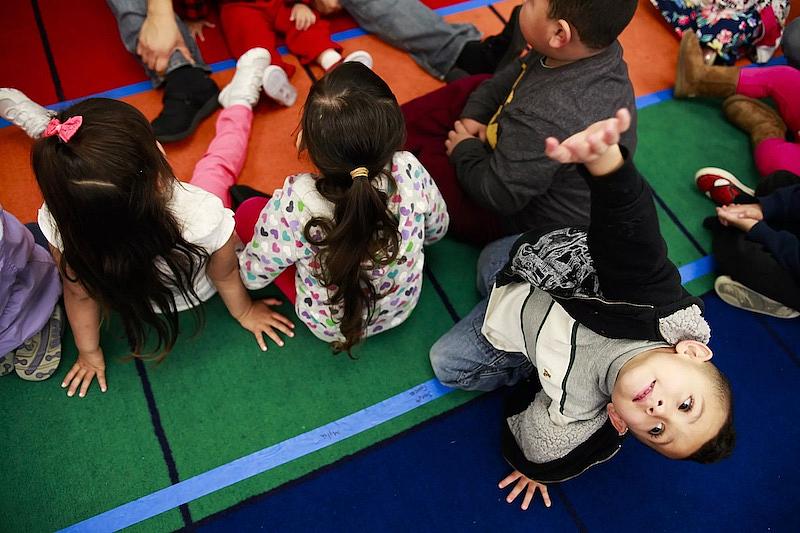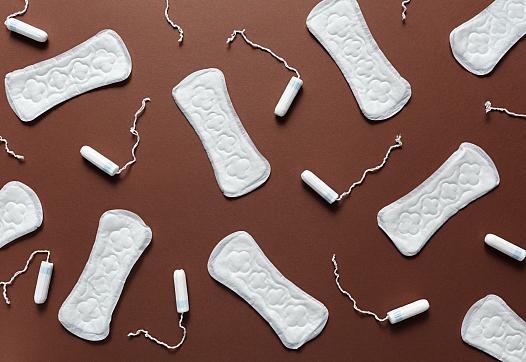Community Conversation: What Is Period Poverty? — Recap And Resource Guide
The story was originally published in IL Latino News with support from the USC Annenberg Center for Health Journalism’s 2022 National Fellowship.

An estimated 300 million people menstruate around the world on any given day. Still, the stigma surrounding this normal bodily function contributes to the cycle of period poverty that leads many without the products and/or knowledge they need to maintain a healthy period.
Illinois Latino News and WBEZ Chicago collaborated on the January 31 virtual event Community Conversation: What is Period Poverty? to explore this issue. Beyond defining period poverty, the event strived to illustrate its effects with video interviews featuring first-hand accounts and expert panelists at both the local and national level. Responses from the Addressing Period Poverty survey shaped the content of this conversation, by catering to the information respondents said they wanted to know.
Panelists included:
Abigail Suleman, Co-founder of Blood Buds and MPH student at UIC
Ida Melbye, Executive director of the Period Collective
Damaris Pereda, National programs director, PERIOD.
Dr. Sameena Rahman, Obstetrics and gynecology specialist at the Center for Gynecology and Cosmetics
Yesenia Raithel Vargas, Certified Nurse Midwife at Esperanza Health Centers
An estimated 300 million people menstruate around the world on any given day. Still, the stigma surrounding this normal bodily function contributes to the cycle of period poverty that leads many without the products and/or knowledge they need to maintain a healthy period.
Illinois Latino News and WBEZ Chicago collaborated on the January 31 virtual event Community Conversation: What is Period Poverty? to explore this issue. Beyond defining period poverty, the event strived to illustrate its effects with video interviews featuring first-hand accounts and expert panelists at both the local and national level. Responses from the Addressing Period Poverty survey shaped the content of this conversation, by catering to the information respondents said they wanted to know.
Panelists included:
Abigail Suleman, Co-founder of Blood Buds and MPH student at UIC
Ida Melbye, Executive director of the Period Collective
Damaris Pereda, National programs director, PERIOD.
Dr. Sameena Rahman, Obstetrics and gynecology specialist at the Center for Gynecology and Cosmetics
Yesenia Raithel Vargas, Certified Nurse Midwife at Esperanza Health Centers
One key finding of the survey highlighted the misconception of what period poverty is. Of 204 responses, 48 percent of people said that they have struggled to pay for period products, but only 39 percent said that they have experienced poverty. If someone has struggled to pay for period products, then they have in fact experienced period poverty.
“Period poverty for those who live on the street looks very different from period poverty for somebody who has most of the things that they need but, maybe there’s a month here and there where they can’t afford product that they need…” said Ida Melbye, co-founder of The Period Collective.
Stigma drives negative associations with menstruation and prevents people from openly discussing it. Pain. Discomfort. Embarrassing. Dirty. Gross. Sad. These are some of the most common words respondents of the Addressing Period Poverty survey said that they associated with their periods. Especially in Black and Latinx communities, who are most affected by period poverty, many menstruators are taught from an early age to keep their periods private.
“My mom would always tell me nobody should know when you have that, no one,” said 51-year-old Trinidad Elisa Sanchez, who is originally from Chicago but now lives in Houston, Texas.
This suppression has lasting effects. Instilling this taboo prevents folks from learning how to best care for their bodies or use menstrual products the recommended way. It also keeps those in need from seeking resources to help and leads to lasting internalized shame.
“I think it started my journey to not liking myself at that age, actually,” said 27-year-old Chloe Story from Elk Grove, California.
This community conversation covered a variety of additional topics from access to products to gender norms and sexual health education. The full Community Conversation: What is Period Poverty? can be viewed on both IL Latino News and WBEZ’s Youtube channels. Follow this link to rewatch the event in Spanish.
IL Latino News has created the list of resources below to continue this conversation and help point those in-need of products to local organizations who are able to help.
Organizations offering period products
The Bloc (during their food pantry, every first friday of the month): https://theblocchicago.org
Fourth Presbyterian Church Meals Ministry: https://www.fourthchurch.org/meals/index.html
Gyrls in the H.O.O.D Foundation: https://gyrlsinthehood.com
Nourishing Hope (ask for hygiene products): https://www.nourishinghopechi.org/get-food/
Nourishing Hope (free home delivery for seniors and people with disabilities): https://www.nourishinghopechi.org/get-food/home-delivery/
The Period Collective: https://theperiodcollective.org
Learn more about menstruation and period poverty
Glossary for the Global Menstrual Movement: https://period.org/uploads/Global-Glossary-for-the-Menstrual-Movement-v1.3.pdf
It’s a Curse: Menstrual Shaming Needs to End Everywhere by Dr. Sameena Rahman: https://garnetnews.com/2019/01/15/its-a-curse-menstrual-shaming-needs-to-end-everywhere/
Information about menstrual cups: https://www.heygirls.co.uk/education/give-a-cup-a-go/
Locate your local PERIOD chapter: https://docs.google.com/spreadsheets/d/1cruPkPyZvCo8PBmM8avJoLujqYIuctCP/edit#gid=443025411
Menstrual Hygiene Day: https://menstrualhygieneday.org
National menstrual equity legislation: https://allianceforperiodsupplies.org/period-legislation/
She Votes IL Menstrual Equity in IL Toolkit: https://www.shevotesil.org/current-initiatives.html
Tampon Tax Tracker: https://allianceforperiodsupplies.org/tampon-tax/
What is Menstruation?: https://www.plannedparenthood.org/learn/health-and-wellness/menstruation
Queer period activists: https://www.thefemword.world/the-word/queer-period-activists
Your first period: https://www.acog.org/womens-health/faqs/your-first-period


